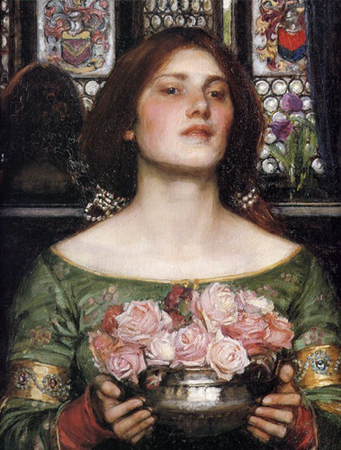Aromatherapy

Essential oils promote natural healing by stimulating and reinforcing the body’s own mechanisms. They also work on the central nervous system. Some oils will relax others will stimulate. Aromatherapy also aims to strengthen the immune system. Orthodox medicine tends to weaken the body’s defenses by suppressing conditions without removing the cause. Chemical drugs may cause side effects, which can hamper the body’s ability to heal. In traditional orthodox medicine this use of chemical drug use can lead to iatrogenic disease (drug induced), a problem that is far more wide spread than is realized.
It is very important to adopt a balanced viewpoint and accept that the use of drugs has its place in the holistic scheme of things. In some cases drug intervention may be crucial in life or death situations. It would be unrealistic to suggest that aromatherapy or any other holistic alternative is the answer or can solve the problem of congenital disorders, such as liver or kidney dysfunction. What Aromatherapy can do is enhance our quality of life by helping us transform stress, apathy and depression into more creative healing energy.
The true beginnings of Aromatherapy have disappeared into the mists of time. Our early ancestors were most likely endowed with highly developed sensory and intuitive powers. These ancestors also discovered edible and medicinal plants. They discovered that some aromatic plants, when thrown on a fire, gave rise to altered states of consciousness. Some aromas made them feel euphoric, uplifted, while others made them feel drowsy. Throughout history fumigation using aromatic substances was used to prevent the spread of infectious disease and is still used in certain parts of the world. The ancient Egyptians used aromatics in magic, healing, massage, cosmetics and embalming. They collected beautiful and exotic plants from distant lands and transformed these into perfumes, medicines and unguents.
Aromatherapy may help many disorders and may contribute as a part of a holistic regime. It is important to remember disease and illness happens over a period of time, which can be brought on by our mental state, stress factors, unbalanced diet and an unhealthy lifestyle. Holistic Aromatherapy, as well as with other holistic therapies, demands a commitment from yourself. You must take control of your life and accept responsibility for your health. Aromatherapy can help you to increase your energy levels and restore a sense of harmony to your life. By creating favorable conditions in the whole person body-mind spirit, the body will be allowed to heal itself. The following is a list of a few essential oils one can begin with. Familiarize yourself with the following oils and then expand your horizons.
Basic Aromatherapy kit
- Lavender ~ antibiotic, vulnerary, antiseptic, antidepressant and detoxifier.
- Tea Tree ~ antiviral, antifungal, antibacterial and vulnerary.
- Peppermint ~ anti-inflammatory, antiseptic, and digestive.
- Chamomile ~ antibacterial, antiseptic and disinfectant.
- Eucalyptus ~ analgesic, anti-inflammatory, antibiotic, antiseptic and deodorizing.
- Myrrh ~ astringent, antiseptic, fungicide and vulnerary.
- Geranium ~ sedative, antiseptic and astringent.
- Melissa ~ sedative.
- Clove ~ antibacterial, antiseptic, analgesic and sedative.
Definitions
- Antibiotic – combats infection.
- Analgesic – reduces pain.
- Antidepressants – reduces depression.
- Antiviral – kills viruses.
- Antiseptics – inhibits the growth of organisms like bacteria and germs.
- Anti-inflammatory – reduces swelling, redness and heat.
- Antineuralgic – Soothes nerve pain like neuralgia.
- Astringents – tightens tissues, reduces fluid loss.
- Antispasmodic – eases muscular cramps or spasms.
- Carminative – helps with digestion and intestinal gas.
- Deodorants – reduces odor.
- Euphoric – enhances well being.
- Expectorant – eliminates excess respiratory mucous.
- Fungicides – kills yeast and molds.
- Nervine – effects the nervous system as a sedative or stimulant.
- Regulating – helps balance and normalize body functions.
- Sedative – relaxing, soothing and calming.
- Stimulant – energizing and invigorating.
- Vulnerary – helps heal wounds.
There are a few cautions you should be aware of before using Aromatherapy & Essential Oils:
- Essential Oils are Flammable.
- Many essential oils should be avoided during pregnancy or by those that have health conditions such as asthma or epilepsy. If you are unsure about specific oils, consult your doctor.
- Essential Oils should not be taken internally unless you have a prescription from your medical doctor or aromatherapy practitioner.
- Some essential oils can trigger sensitization or allergic reactions. Before using a new oil you should always do a skin patch test on a small area of skin. Essential oils should never be used on the skin if not diluted. Place a small amount of diluted oil on the inside of your elbow and wait 24 hours to see if there is any reaction.
- When dealing with essential oils, less is more. Essential oils are very powerful, just a small amount will go a long way.
- Essential oils should be treated as medicine and kept out of reach of small children.
~ Use extreme caution if you are pregnant, nursing, are epileptic, have heart conditions, low or high blood pressure.
Essential oils may cause photo-sensitivity, skin irritation or may sensitize the skin. Be sure to research all oils BEFORE you use them! This is YOUR responsibility. Gaia’s Garden is not responsible for use or misuse of any products
DISCLAIMER
The information on this site is intended for educational purposes only, and not intended to be a substitute for medical care. Please consult your health practitioner as necessary. Gaia’s Garden is not responsible for legal or medical issues resulting from the use or misuse of this information. Consult a licensed medical health care provider for your health care needs.
